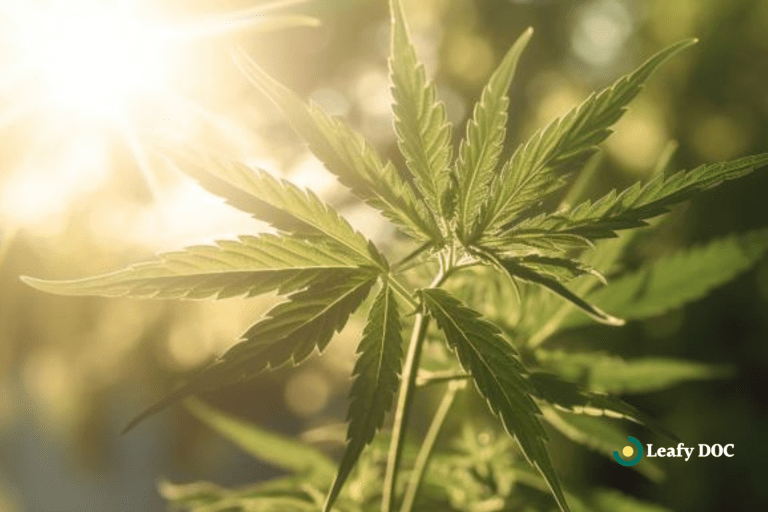Alcoholism
What is alcoholism?
Alcohol use disorder (AUD) or Alcoholism is defined as frequent alcohol use that involves problems controlling how much you are drinking, becoming borderline obsessed with using alcohol and continuing to use alcohol even when it has become a problem. AUD consists of drinking with the intention of intoxication or withdrawal symptoms when you decrease or stop use.
Unhealthy alcohol use significantly risks your health, relationships, jobs, and overall safety. Alcoholism can range from mild to severe and lead to serious issues, so early detection and treatment are essential.
What are the symptoms?
Mild to severe signs and symptoms of alcoholism may include:
- Being unable to apply limits to your alcohol consumption
- Unsuccessfully attempting to cut back on how much you drink.
- Spending a lot of time buying, drinking, or recovering from an alcohol-induced hangover
- Feeling an intense craving to drink alcohol.
- Failing to fulfill social obligations at work, school, or home due to alcohol use and continuing to drink anyways
- Giving up or reducing social activities or hobbies to use alcohol
- Using alcohol while driving
- Developing a tolerance to alcohol
- Experiencing withdrawal symptoms (nausea, sweating, shaking) when you don’t drink alcohol
What are the causes?
The exact reasons for the development of alcoholism are unknown; however, scientists have narrowed it down to a combination of one or more of the following:
- Genetics
- Early childhood trauma
- Emotional Pain
- Financial Hardships
People are more likely to develop alcoholism if they:
- Consume alcohol often or in large amounts, or
- Start drinking at a young age
- Experienced physical or sexual abuse.
- Family history of alcohol use disorder.
- Have mental health issues, such as:
- significant grief or loss
- anxiety
- depression
- eating disorders
- post-traumatic stress disorder
Stages of Alcohol Use Disorder
There are four primary stages of alcohol abuse that lead to severe Alcohol Use Disorder symptoms.
- At-risk: You drink socially to relieve stress or anxiety and may start to develop an alcohol tolerance.
- Early AUD: You have progressed to blackouts, drinking alone or secretly, and thinking about alcohol when not using.
- Mid-stage Alcoholism: Your alcohol use is uncontrollable and causes daily problems. During this stage, organ damage can typically be seen on lab tests and scans.
- End-stage Alcoholism: Drinking is the primary focus of your life, excluding food, relationships, health, and well-being. Despair, significant organ damage, and death are close by without treatment.
Alcohol Use Disorder (AUD) Statistics
- About 14.5 (1 in 10) million Americans 12 years or older have an alcohol use disorder.
- 140,557 Americans die from the effects of alcohol in an average year.
- Over half of Americans increased their alcohol consumption during COVID-19 lockdowns.
- Approximately 3 million people worldwide die yearly as a result of alcohol abuse.
- Alcohol-related deaths account for at least 5.3% (some estimate as high as 6.0%) of the world’s deaths.
- Alcohol causes 13.5% of deaths among 20- to 39-year-olds.
- Men are three times as likely as women to die due to alcohol abuse.
- The World Health Organization (WHO) has determined excessive alcohol use is responsible for 7.1 percent of diseases among males and 2.2% among females.
- Americans lose over 3.59 million years of potential life due to excessive drinking.
Can medical cannabis help with recovery?
Clinical data from a recent study by the Recovery Research Institute concluded that:
This study showed that CBD, compared to placebo, helped decrease the cue-induced craving and anxiety of individuals with heroin use disorder. Many people with opioid use disorders seek alternative treatments to curb cravings and reduce stress and are reluctant to try agonist treatments such as methadone or suboxone.
This study suggests individuals with drug addiction may benefit from EPIDIOLEX, the FDA-approved CBD addiction medicine. Still, more extensive studies are needed to confirm this as clinical evidence. Individuals seeking to use cannabis, in general, for opioid addiction should proceed cautiously, as with any pharmaceutical drug.
Is medical marijuana addictive?
Marijuana use can lead to the development of a problem with the drug, known as a marijuana use disorder, which in severe cases, can lead to addiction. According to recent studies, 30 percent of marijuana users may have some form of marijuana use disorder. Marijuana users under 18 are four to seven times more likely than adults to develop a marijuana use problem.
Marijuana use issues are frequently linked to dependence, which occurs when a person has withdrawal symptoms after stopping the drug. Irritability, mood, sleep problems, decreased appetite, cravings, restlessness, and/or various forms of physical discomfort are common among marijuana users. These symptoms peak within the first week after quitting and can last up to two weeks.
Can weed cause a hangover too?
The persistent headache and unrelenting upset stomach (“praying to the porcelain gods”) that accompany a long night of alcohol aren’t always present in a cannabis hangover. That isn’t to say they never happen, but it’s much less pronounced and indirect.
As a diuretic, alcohol causes frequent urination and depletes your body’s supply of available hydration, thus leaving you vulnerable to headaches. THC, conversely, is known to decrease saliva secretion — “cottonmouth” — but that’s not the same as full-body dehydration. No clear evidence exists to suggest that smoking marijuana causes dehydration. However, failing to counteract dry mouth by staying hydrated can lead to dehydration, triggering headaches.
Typically, only mild nausea (if any) occurs during a weed hangover, usually nothing so wrong that you couldn’t try to eat something to feel better. Remember also that THC also works as an appetite stimulant.
Conclusion
Evidence shows that certain cannabinoids (particularly CBD) have the potential to help with addiction recovery and withdrawal symptoms. Although, it’s essential to remember that THC and other psychoactive cannabinoids may have adverse effects, so check with a trusted health professional before changing your treatment plan.
Last Updated: June 14, 2024
Get Your Medical Card
Connect with a licensed physician online in minutes
Table of Contents
Keep Reading
-
Practicing Mindfulness With Cannabis For Stress Relief
Uncover the powerful synergy of cannabis and mindfulness for stress relief. Master techniques for a tranquil mind and inner peace in this insightful guide. Start practicing mindfulness with cannabis today!
-
Convenience And Precision: The Rise Of CBD Capsules
Unlock the ultimate convenience and precision with CBD capsules! Dive into the trend that’s changing the game in wellness. Click here to discover more.
-
Exploring The Role Of Cannabis In Holistic Healing
Uncover the transformative potential of cannabis in holistic healing practices. Learn how this natural remedy can enhance your well-being and explore its role in alternative medicine. Click now to delve into the world of cannabis and holistic healing!



